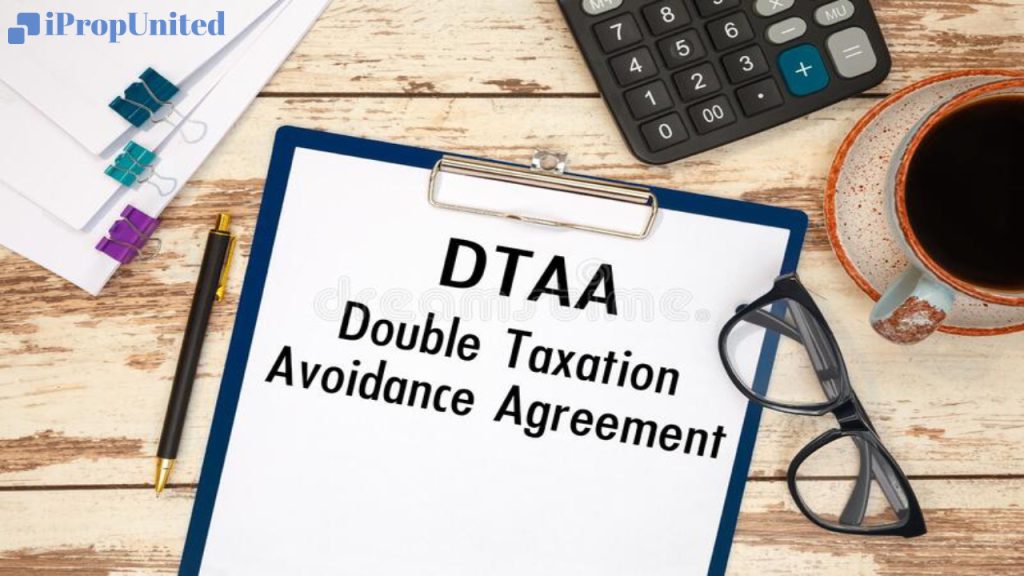The Double Taxation Avoidance Agreement (DTAA) helps Non-resident Indians (NRIs) working in other countries avoid making double tax payments on their income earned in other countries and their country of residence. Signing DTAAs between the nations is especially to minimize tax evasion by taxpayers in either or both of the nations between whom bilateral/multilateral DTAAs were inked.

What is Double taxation avoidance agreement?
DTAA is a tax treaty signed between two or more countries to help taxpayers avoid paying double taxes on their income earned from the source country as well as the residence country. Currently, India has signed double tax avoidance treaties with more than 80 countries around the world.
Imbalanced tax collection on the global income of individuals necessitates signing the DTAA. If a person aims to do business in a foreign country, he may end up paying income taxes in both the country where the income is earned and the country where the individual holds his citizenship or residence. For instance, suppose you are moving to a different country from India while leaving income sources such as interest from deposits here, you will be charged interest by both India and the country of your current residence as per your consolidated global earnings. Such a scenario is when you pay twice the tax on the same income. Here, the DTAA becomes useful for taxpayers.
Benefits of DTAA
The DTAA offers taxpayers a variety of advantages. The primary advantage is avoiding paying two taxes on the same income. Apart from this,
- Lower Withholding Tax (Tax Deduction at Source or TDS)
- Exemption from taxes
- Tax credits
Less withholding tax means that taxpayers can pay less TDS on their interest, royalties, or dividend income in India. Additionally, some agreements offer tax credits in the source or resident country to prevent taxpayers from paying the same tax twice. Capital gains tax may be exempted in some agreements, such as those with Egypt, Singapore, Mauritius, and Cyprus, which is advantageous for taxpayers because they can use the DTAA agreement to pay as little tax as possible.
Eligibility for DTAA?
Any NRI who has been earning money abroad is eligible for DTAA, which is a provision that aids in receiving tax relief.
Documents required for availing of DTAA
During each fiscal year, a set of documents must be submitted by NRIs who want to take advantage of DTAA relaxations. These documents make it simple to file taxes by the due date.
- Certificate of tax residence (TRC)
- Format for self-declaration and indemnity
- Self-attested Visa copies
- Self-attested copy of a PAN card
- Proof of PIO
- Self-attested Passport
How is tax calculated under the DTAA?
Tax relief is applicable to those who are eligible to receive payment from India as well as from abroad sources. This tax relief is applicable under section 90 of the Income Tax Act. Below are given some steps to calculate tax relief under the DTAA:
- Firstly, calculate the global income by adding earnings from India and foreign
- Next, ascertain the income tax that must be paid on this calculated global income.
- Calculate the average tax rate by dividing the total tax revenue by the worldwide income.
- Calculate the total by multiplying the amount of foreign income by the standard tax rate.
The scope of the relief under section 91 will be calculated by comparing the foreign tax rate and the Indian tax rate. Now, multiply the income with the lower tax rate to get your tax relief applicable under section 91.
Penalties for tax evasion
Here are some penalties that apply to those who evade tax:
- Those who miss the deadline to file their income tax return are liable to a penalty of Rs 5,000 late fee.
- Anyone who fails to report their income may be prosecuted and must pay a penalty that ranges from 100 percent to 3000 percent of the unpaid tax.
- One will be punished if they provide the incorrect PAN card number. According to the regulations, the employer may deduct 20% of the tax deducted at source (TDS), or a penalty of Rs 10,000 may be owed.
- Companies that fail to audit their accounts or fail to submit the audit report as required by section 44AB will be liable to a fine of Rs. 1.5 lakhs or 0.5 percent of their annual sales turnover.
Follow and Connect with us: Twitter, Facebook, Linkedin, Instagram








